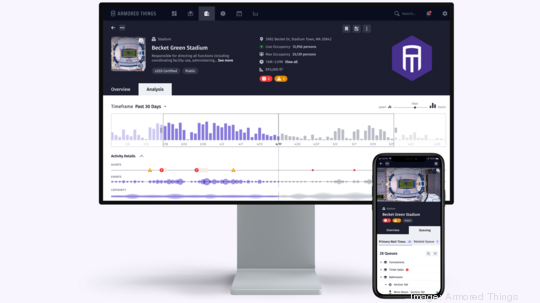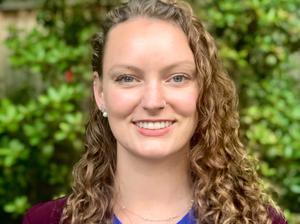
Armored Things, a Boston-based startup that uses data from security devices to monitor crowds, announced on Tuesday a $12 million Series A financing round led by Nimble Ventures.
The startup added Gutbrain Ventures, PBJ Capital and Micromanagement Ventures to its list of investors. The latest round brings its total fundraising to $27 million.
When Armored Things launched in 2016, the startup used its software to detect security threats at venues. The company grew to include features to enhance space utilization, operations and guest experiences. And the Covid-19 pandemic created a new demand for tracking crowds and a broader interest in Armored Things’ software, which uses sensors and AI to provide real-time data on people’s movements.
“When we were first out in the market talking about why it matters to know where people are, we were also kind of trying to create market awareness, which is challenging,” said co-founder and CEO Julie Johnson Roberts. “And in some ways Covid actually accelerated market awareness of why knowing where people are in your space is important.”
Crowds are making a comeback, and Boston-based Armored Things is rising to meet the moment with software to help venues, campuses and corporations reopen safely. The software can help clients make decisions about opening or closing spaces, rerouting crowds at peak concession times or creating safety and evacuation reports, Johnson Roberts said.
Armored Things plans to use this most recent funding to continue building its platform and team, Johnson Roberts said. The startup’s headcount is around 30 employees, and she plans to bring on 10 more people by the end of this year.

“This is both to build the existing product and to maintain it, and to make sure that we’re testing and deploying new features that are going to meet the needs of our customers the same way that we did during Covid,” Johnson Roberts said. “Currently we’re really re-envisioning that customer experience with the product so there’s going to be a big thrust toward reimaging that user experience.”
The startup is also growing its client roster in sports and entertainment venues, college campuses and corporations. Armored Things recently brought on Jonathan Tice as its first chief revenue officer to lead this market expansion. Tice, who previously served as chief customer officer at FocusVision, will be responsible for sales, marketing, business development and strategic partnerships.
Armored Things added new features to its services last year, including density and clustering alerts to notify business owners when a space was reaching capacity or people were not social distancing. Johnson Roberts said her team and their software became highly adaptable as capacity limits and public health guidance changed. These adaptations were funded by $7 million in additional seed funding that Armored Things raised last summer.
Johnson Roberts said the company saw its total number of clients triple during the last year but declined to provide an exact number of current clients.
Armored Things secured a contract in June 2020 with the Los Angeles Football Club (LAFC), part of the Major Soccer League, to monitor crowd density, space utilization, security and sanitation in its 22,000-person venue.
While the pandemic increased demand for crowd intelligence, Johnson Roberts said Armored Things’ clients and investors partnered with the startup for the long-term benefits of its software.
“They wanted to know that we could help them with reopening, but they really wanted to know that there was long-term value there,” she said. “So, it started to revert back to facility optimization, general operations, space utilization, and some of the core use cases around safety and security but with a broader view to include Covid safety.”
— Hannah Green is an ACBJ business reporting intern






